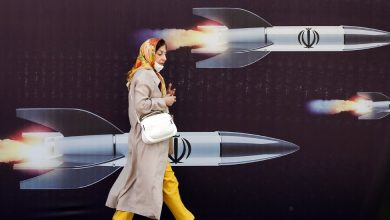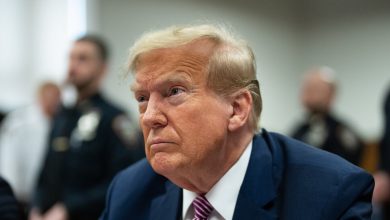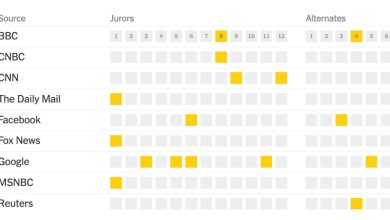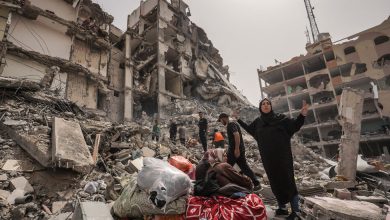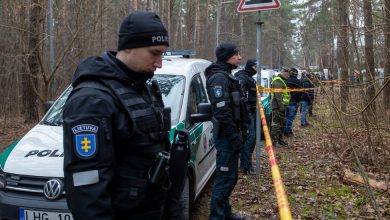Big City Mayors, Furious About Mass Shootings, Fear Sweeping Gun Limits Are Out of Reach

RENO, Nev. — As the mayors filed into the conference room, they received a pamphlet called the “Mass Shooting Protocol” that included practical tips on coordinating with the police, setting up family reunification centers and organizing vigils. Make sure to post updates on a single social media account, the brochure advised. Immediately set up a fund for donations. Keep the media away from victims’ loved ones.
Prepping for massacres has become a standard part of leading an American city, a reality that mayors discussed with a mix of anger, fear and matter-of-fact resignation as they gathered over the weekend in Reno, Nev., for a meeting of the United States Conference of Mayors.
The meeting, held in a country raw from killings in Buffalo and Uvalde, Texas, exposed a paradox of American mayoralty: When mass violence happens, mayors are the ones who must deliver the grim details, console their cities and field questions about how the gunman might have been stopped. But while big city mayors often have authority over police departments and social service programs, which can help prevent gun violence, they say they are largely powerless to enact the gun control measures that many of them say would be needed to prevent more tragedies.
“We’re pissed off,” said Mayor Greg Fischer of Louisville, Ky., a Democrat who was among the more than 170 mayors who met in Reno. “We’re working so hard every day to make our cities safe. And there’s actions that could be taken at the federal level, or state level in many of our cases. But for those of us in red states, we’ve almost given up on state action.”
Over the weekend, mass shootings continued to unfold across the country. Near Summerton, S.C., eight people were shot, one fatally, at a graduation party. In Philadelphia, three people were killed and 11 were wounded. In Chattanooga, Tenn., a 14-victim shooting included two fatalities, plus a third person killed by a car.
Even as President Biden called for new gun control measures, and as a bipartisan group of senators negotiated possible changes to federal law, interviews with mayors of large cities in Reno revealed more exasperation than optimism about a legislative breakthrough.
Banning certain kinds of weapons, which Mr. Biden and several of the mayors supported, seemed like a political nonstarter in Washington. Even relatively incremental steps, like expanding background checks, raising the minimum age to buy some weapons or passing so-called red flag laws, felt elusive. Some expressed hope for some sort of deal, but many mayors said there had simply been too many times before when outrage fizzled into inaction.
“As a nation, we have to make a decision — we are in that inflection point right now,” said Mayor Jane Castor of Tampa, Fla., a Democrat who previously served as that city’s police chief. “Are we going to continue to just see these mass shootings and everyone sends their prayers and their sympathies, but no action is taken? And unfortunately, I feel that may be where we’re at.”
Democrats lead most but not all of America’s biggest cities, and many of them have long called for expansive gun restrictions, which they say are necessary to address mass shootings as well as the sort of everyday street violence that takes thousands of American lives each year. Republicans in state capitals and in Congress have often blamed Democratic mayors for violence in their cities, arguing that mayors do not support law enforcement enough and are overly focused on guns instead of other issues, like mental health, that can lead to violence.
But at least among mayors of large American cities, there is a bipartisan push for tightening some gun restrictions. The Conference of Mayors republished a letter last week with an updated list of signers urging senators to pass two bills strengthening background checks for gun purchases. The letter was first sent in 2019.Several Republican mayors, including the leaders of Miami, Oklahoma City and Fresno, Calif., signed onto the letter.
“When people start saying things from the left and the right, that creates such a divide that nothing gets done,” said Mayor Jerry Dyer of Fresno, who served as police chief before becoming mayor, and who supports a range of gun restrictions. “It isn’t until the emotion passes that reasonable minds can come together. But by then, the sense of urgency is left, and then nothing gets done.”
Many of the mayors who traveled to Nevada for the annual mayors’ meeting, which was planned long before the latest shootings, had firsthand experience with mass violence. In less than two weeks since 21 people were slaughtered at the Uvalde elementary school, there have been 33 other shootings in which at least four people were killed or wounded, according to the Gun Violence Archive. There have been more than 200 such shootings already this year, most of which received little or no national attention.
Mayor Jeffrey J. Mims Jr. of Dayton, Ohio, said he had been hopeful before that tragedy would beget change. In 2019, when he was a city commissioner, he helped families as they were notified that their loved ones were among the nine people killed and 17 injured in a shooting in an entertainment district. At a vigil soon after, Dayton residents yelled, “Do something!” at Gov. Mike DeWine, a Republican. Mr. DeWine then proposed a red-flag bill, which would allow law enforcement to seize guns from people deemed dangerous.
“We say, OK, maybe this will make a difference so these folks will not have died in vain,” said Mr. Mims, a Democrat.
Now, he said, that all feels further away than ever. Republicans in the Ohio Legislature showed no interest in passing a red-flag law. And in recent months, Mr. DeWine, who is up for re-election this year, signed a law allowing people to carry a concealed weapon without a permit, a measure Democrats opposed.
“I am optimistic that at a certain point, people are going to look around and be shocked into action,” said Mayor Aftab Pureval of Cincinnati, a Democrat who opposed that recent law that the governor signed and another bill that Mr. DeWine has pledged to sign that would make it easier to arm Ohio teachers. “I’m surprised we’re not there yet.”
Some cities, including Boulder, Colo., have moved to tighten gun rules at the local level. But many states bar local officials from enacting such restrictions, and other places, including Chicago, that have tried to create tighter restrictions have seen some of their rules set aside in the courts. The Supreme Court is currently weighing the constitutionality of a New York State law that requires people seeking a license to carry a handgun in public to show a “proper cause,” a case that considers whether such laws violate Second Amendment rights.
With a judiciary skeptical of limiting gun rights, and no ability to force change in Congress or in Republican-controlled capitols, mayors have been left to seek other ways to tamp down violence. Austin, Texas, used funding for unfilled police positions to hire mental health workers to respond to emergencies. Cincinnati expanded partnerships with federal law enforcement on gun cases. Kansas City, Mo., sued a gun manufacturer whose license was later revoked by federal authorities.
“I think what you’re seeing now is a connection among a lot of us to say, ‘We’re not just moving on,’” said Mayor Quinton Lucas of Kansas City, Mo., a Democrat whose city broke its record for homicides in 2020, when 179 people were killed.
But as mayors pushed for more expansive action, many described a feeling that their authority was relegated to the margins of the issue.
“It gets really, really frustrating in areas like this where a mayor does not have the control,” said Mayor Steve Adler of Austin, Texas, a Democrat in a Republican-controlled state. He added that it was hard to tell a constituent demanding new laws that “‘I agree with you and I wish I could change that but I have no control.’ That’s an insufficient answer.”
Mayor Kim Norton of Rochester, Minn., a Democrat who unsuccessfully pushed gun control bills in her former role as a state lawmaker, said she wished the State Legislature, where Republicans control one chamber, would at least allow her to enact municipal gun restrictions, like banning weapons at the library or creating a multiweek waiting period to buy a gun. There is no indication that they will.
Republicans opposed to more gun control often point to places like Illinois, where guns are tightly regulated but homicides remain pervasive, as evidence that new restrictions won’t meaningfully reduce violence. Many of them have called instead for investing in mental health programs, increasing funding for law enforcement and bolstering security at schools. Democrats say they are missing the point.
“We’re not having the same conversation,” said Mayor Satya Rhodes-Conway of Madison, Wis., who wants stricter gun laws. “Half of the conversation is about, ‘How can we keep letting people die unnecessarily?’ and half of the conversation is, ‘I need my gun, it’s my constitutional right.’ We’re not even at the same table talking about it.”
Ms. Rhodes-Conway was among several mayors who described constantly bracing for a late-night alert about a mass shooting in their city.
For Mayor Jim Kenney of Philadelphia, that came Saturday evening in Reno during a routine phone check-in with an aide. More than a dozen people had been shot at a popular weekend gathering spot, he was told, and three of them had died.
Mr. Kenney, who was scheduled to leave the Nevada conference on Sunday night, said he looked into catching an earlier flight or even driving to the airport in San Francisco but that there were no good options to make it home sooner. “It’s like, ‘What? What?’” Mr. Kenney said of his initial reaction to the shooting. “And I can’t get out.”
At this point, Mr. Kenney, a Democrat, said, there was little he could say to reassure frightened or grieving residents in the face of legislative inaction.
“Words are hard. Words these days have become somewhat meaningless,” he said. “Hearts and prayers, and prayers and condolences, it doesn’t work anymore. It just doesn’t work. And again, the frustration for me is I would like to be able to do something about it.”
